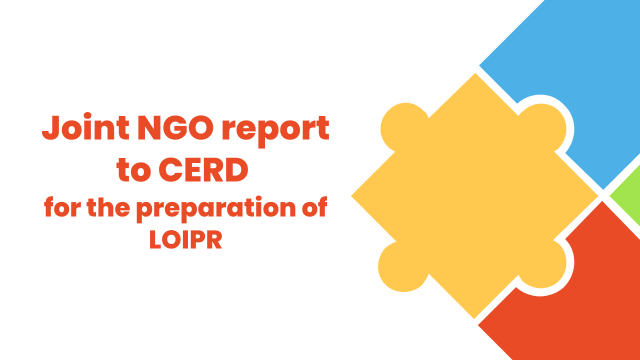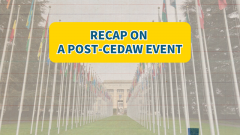Accountability and human rights in Sri Lanka (HRC43, 2020, Joint-OS)
February 28, 2020
IMADR delivered the joint oral statement on “Accountability and human rights in Sri Lanka” at the 43rd session of the Human Rights Council. Whole text can be read below or download here.![]()
Co-sponsors of the statement are: Amnesty International; Asian Forum for Human Rights and Development (FORUM-ASIA); CIVICUS; Franciscans International; Human Rights Watch; IMADR; International Service for Human Rights (ISHR); and Minority Rights Group International
———
Joint Oral Statement: 43rd session of the Human Rights Council
Item 2: General Debate on reports and oral updates of the High Commissioner and the Secretary-General
28 February 2020
Madam President,
We are deeply concerned by indicators of a significant backsliding on human rights in Sri Lanka, underscored by the government using their address to the Council this week to go back on the important commitments made by Sri Lanka through HRC resolution 30/1.
Sri Lankan authorities’ indication to revoke the 19th amendment to the Constitution would remove check and balances on the executive and seriously jeopardise the independence of the judiciary and relevant commissions. The Government is reportedly considering reviewing the Office on Missing Persons (OMP) Act. Similarly, the President’s recent callous comments about the fate of thousands of missing persons without any conclusion of investigations in line with international law have added to the distress of families of the disappeared. A Gazette on 22nd January granted powers to a Commission of Inquiry (CoI) to scrutinise investigations into emblematic cases. The COI has attempted to halt criminal proceedings against navy officers accused of the disappearance and killing of eleven youth. We echo the High Commissioner’s concern[1] on the promotion of several military officers who are named in the OISL report for violations of international law.
Since November 2019, the Ministry of Defence has been assigned as the oversight body for NGOs, significantly increasing the risk of their surveillance. More than a dozen human rights and media organisations have received intimidating visits from law enforcement and intelligence agencies,[2] while death threats[3] against journalists have resumed. The climate of fear has returned to Sri Lanka, in particular among those who continue to call for truth, justice and accountability. Relentless campaigns against minorities also require immediate attention.
We urge this Council to hold Sri Lanka accountable to its obligations under international law. Given this week’s announcement that the new Government will not continue to engage with the clear framework agreed through resolution 30/1; the failure of past domestic reconciliation and accountability mechanisms; and the ongoing compromise of the rule of law as pointed out by the High Commissioner yesterday, we call on the Council to establish an international accountability mechanism on Sri Lanka.
Thank you, Madam President.
[1] A/HRC/43/19, paragraph 34
[2] Amnesty International, Sri Lanka: Attacks on Human Rights Organisations, Media Organisations and Journalists In Sri Lanka, 2020, https://www.amnesty.org/en/documents/asa37/1678/2020/en/
[3] Colombo Gazette, Batticaloa Tamil journalists receive death threats, 2020, http://colombogazette.com/2020/01/24/batticaloa-tamil-journalists-receive-death-threats-2/





